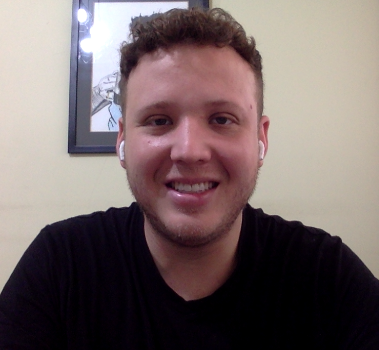
By
Gustavo da Cunha Moura
January 2023
Print Version
What you need to know
LGBTQ educators are actively advocating for inclusion as they navigate teaching in countries that sometimes have state-sponsored homophobia. To do so, LGBTQ teachers use educational practices and/or discussions around gender and sexuality in class, which can be the only space provided for students to participate and learn about LGBTQ issues in unfamiliar contexts abroad. This study is key to unpacking Western LGBTQ teachers’ identities and helps question and problematize instances of power, privilege, and identity while raising awareness and challenging how advocacy is performed.
Why this research is important
This research considers how teacher identity potentially influences and inspires advocacy in international education contexts. Analysis of teachers’ practices through the medium of English is timely in a society that favours Western knowledge through the English language. As LGBTQ teachers in this study are constantly moving from country to country, it is pivotal to analyze teachers within the most varied locations while exercising some critical standpoints.
How this research was conducted
This study drew on data from a Social Sciences and Humanities Research Council (SSHRC) study entitled Out There: A Study of LGBTQ Teachers Working Overseas. To corroborate the original study, this research used the experiences of six LGBTQ teachers, and their narratives were mapped out. Mapping out means displaying teachers’ stories and creating a map of concepts and ideas shared over two interviews and one reflection section. Participants were chosen based on their teaching subject. They came from varied sexual and gender identity backgrounds (e.g., gays, lesbians, trans, and non-binary) and different countries (e.g., China, Japan, Czech Republic, Thailand, Myanmar, and the Dominican Republic), which helped understand some of the tensions they might navigate. Most of these participants were educators and administrators in international K-12 schools.
What the researcher found
In times when schools are characterized by their pluralities and democratization, educators are not really changing the current realities, but rather privileging particular notions of gender norms and what it is or is not accepted in terms of sexual and gender identity/expression. The biggest lessons we can take out of these LGBTQ educators’ experiences are that:
- Individuals’ positionalities (e.g., administrator, teacher), sexualities (e.g., gay, lesbian, pansexual), gender identities (e.g., trans), spirituality, class, and education, to name a few, impacted participants’ trying to advocate for LGBTQ inclusive practices in international schools in the most different ways.
- Advocating often seems to come from a place of privilege. Whether it is skin colour (e.g., white), capital, place of origin (e.g., Western countries), or the language one speaks (e.g., English), certain privileges allow people to achieve their advocacy goals more comfortably.
- English language still is hegemonic and facilitates entry into a global community. Nonetheless, being part of such a global community cannot make us oblivious and ignorant to the social impact we carry through our mobility.
How this research can be used
LGBTQ experiences can still be represented by people that do not counter the whiteness and heteropatriarchal systems that are in place in so many countries. Educators should benefit from teaching agendas that do not romanticize LGBTQ awareness and social justice. It is not only a matter of having gender-neutral bathrooms, using the right pronouns, or hiring disabled LGBTQ people at universities to prove yourself an ally. The structural impact of oppression still exists, and a few successful LGBTQ community members cannot be used to reflect the reality of an entire community.
Acknowledgements
My appreciation to the University of Manitoba Graduate Fellowship, my committee members, and study participants.
About the Researcher
Keywords
- advocacy
- English language
- international schools
- intersectional
- LGBTQ teachers
Publications Based on the Research
Mizzi, R., Schmidt, C., & Moura, G. (2021). Complexity amidst diversity: exploring the lives of LGBTQ international educators. Comparative and International Education. 50(1), 1–17. https://doi.org/10.5206/cieeci.v50i1.11063
Moura, G. (2022). Mapping LGBTQ educators’ experiences teaching (in) English internationally: Unpacking identity and advocacy. [Doctoral dissertation, University of Manitoba]. http://hdl.handle.net/1993/36712
Editor: Christiane Ramsey
Read more BU Research
Research at Brandon University follows comprehensive policies designed to safeguard ethics, to ensure academic integrity, to protect human and animal welfare and to prevent conflicts of interest.

